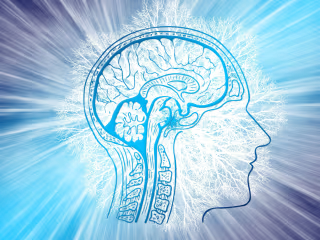SEO Journalism - Sacred Tobacco
Tobacco has been regarded as a healing plant throughout the Americas for thousands of years. Smoked, snorted, drunk, and refined into a paste for eating or to use as a topical—sacred tobacco, or “mapacho,” as it is often called in the Amazon, is an ancient tool.
Tobacco has been grown for at least 1,000 years in South America, and with estimates of the plant being up to 6 million years old, its history of use stretches further back than archeological records can track. Pipes and seeds offer clues of ancient use, while surviving practices like tobacco juice enemas or blessings blown in a cloud of smoke confirm its enduring significance.
Need Access to Shrooms? Secure your supply with DoubleBlind!
When colonial explorers brought tobacco to Europe, the plant became an agent of pleasure and a vice for nobility. As tobacco became available to the masses, like too many plants, it became commodified: Packaged, marketed and profited from. As a product, tobacco became divorced from its cultural meaning and historical roots, while some anthropologists speculated indigenous use was a cover for addiction.
Yet, traditions that carry the old stories and see tobacco as medicine know a different plant. From the Cariris in Brazil, the Witoto in Peru, the Cahuilla in California, and dozens of groups view tobacco as a gift from the earliest days of creation, with the power to heal by connecting with the world of spirit—not as a noxious or poisonous agent.
What is Mapacho (Nicotiana rustica)?
Tobacco that we compulsively consume is a variety known as Nicotiana tabacum, popular for its smooth smoke and desirable taste. The plant has enjoyed international success, dwarfing the reputation of the most beloved celebrities.
Nicotiana rustica flower |
But in North and South America, other varieties exist. The focus of this article is Nicotiana rustica, also known as “mapacho” or “sacred tobacco.” With harsh smoke and, by some estimates, between two and 20 times the nicotine—growing conditions pending—N. rustica makes heads spin and is less attractive commercially. N. rustica is still favored by some seeking organic tobacco products, but more importantly, remains sacred to those who know how to use it.
🍄 👁 🌈 ✨
How to Grow Shrooms Bundle
Take Both of Our Courses and Save $90!
One such person is Ernesto Garcia Torres. Native to Peru, he lives near Iquitos, the hub of Amazon, and is a “tabaquero”—a curandero or healer who works with mapacho. A man of few words, Ernesto, says tobacco is a medicine that works “spiritually, energetically, and physically, but humans have used it incorrectly and have added chemicals to it.”
Modern cigarettes are indeed a far cry from mapacho’s origins. For example, the Tubú people of Colombia say tobacco was brought by star people descending 12 dimensions from the star system Siris in a primordial anaconda canoe. On one end of the canoe are the ayahuasca vine and the other tobacco, gifts to heal the people of the earth “who have forgotten who they are.”
Learning from Sacred Tobacco
But some are remembering, like Marev Artz a tabaquera who facilitates tobacco dietas and ceremonies in the Sacred Valley of Peru. As a single woman, Marev navigated a jungle of charlatan shamans not above rape or murder along with brujos—malicious shamans—before she found a teacher of integrity. After many close calls, Marev met Ernesto Garcia Torres, who taught her the way of tobacco.
Mapacho cigarette rolls | Adobe
With a teacher she could trust, Marev spent years drinking bitter tobacco teas and dieting Amazonian trees at Ernesto’s house in the jungle. There she learned to work with plants, but the knowledge didn’t come from books. Instead, Ernesto guided her through dozens of plant dietas to learn her craft directly from the plants.
When asked about how tobacco works, she explains, “tobacco is very direct with his messages. And it’s up to us whether we listen.” Tobacco is typically seen as strong, masculine energy. Marev compares it to a sword cutting through illusions, a direct channel to the divine, and a key that opens the mind. She explains it can amplify the effects of other plants while also cautioning all this “doesn’t mean it doesn’t give you fantasies.”
What is the Spirit of Tobacco?
Jason Gernchiak also studied with Ernesto and, alongside Merav, is a practicing tabaquero in the Sacred Valley of Peru. Born in Virginia, his first experience with tobacco was becoming intoxicated as boy by the smell of it curing in a barn. It wasn’t until a lifetime of seeking brought him from New York to Mongolia and finally to Amazon. Ayahuasca had what he was looking for, and he was struck by how the curanderos worked with mapacho. After which, he, too, found Ernesto and completed the required dietas to learn from the plants.
In conversations about plant dietas the “spirit” of plants is central. Yet, when asked to explain the spirit of tobacco, Jason didn’t point to something easily written down. Instead, he recounts how when he first began living and working in the jungle with the Shipibo-Konibo at the Temple of the Way of Light. He repeatedly witnessed an exchange on plant walks between the curanderas and the western visitors.
“What does that plant do?”
“Well, that plant is medicine.”
“Yeah, but what does it do? What is it good for?”
If such exchanges reached a satisfying conclusion, Jason doesn’t share. Instead, he makes the point that the initial answer of “medicine” shows a fundamental difference in worldviews. The way a Western mind relates to a plant is to label it and put it in a box. But Jason says, “It’s good medicine; that’s the answer. You know, whatever you come to learn from that is for you to learn, but it’s medicine.”
While probing deeper for what exactly the spirit or medicine of tobacco is, the conversation spirals into a rabbit hole of mythology, and zen koans before Jason finally points out, “If you were to ask, you know, tell me about the spirit of a person. What’s the answer?”
Medicinal Uses of Tobacco & The Science of Nicotine
Understanding plant spirits is not the strong suit of Western minds. Science doesn’t have a nice box to put spirit in, and nuances in the cultural meaning of words like “spirit” and “soul” can be lost in translation, but science can offer some clues into the power of Nicotiana rustica—and other forms of tobacco.
Jeremy Narby is an anthropologist who has also spent time in the Amazon, experienced tobacco, and wrote a book called Plant Teachers alongside another Peruvian tabaquero Rafael Chanchari Pizuri.
Woman holding kuripe and powdered mapacho | Adobe
The book examines tobacco from many angles, including modern science. Narby is quick to acknowledge the potency of nicotine: “It’s one of the more toxic botanical substances in nature, as one or two drops of pure nicotine placed on the tongue or skin can kill an adult human,” he writes. It’s worth noting that purified nicotine is not traditionally used in any culture. Nonetheless, it’s important not to underestimate nicotine’s strength: Nicotine poisoning, which is more likely to occur with consumption methods like enema, teas, and combinations of various forms of tobacco, can be fatal.
Need Access to Shrooms? Secure your supply with DoubleBlind!
Yet, Narby explains that the view of nicotine as an addictive and destructive compound isn’t the whole story. Nicotine has a similar structure to the neurotransmitter acetylcholine, meaning it can bind to receptors in our bodies, potentially influencing processes like learning and memory to muscle control. Inside the body, nicotine can trigger the release of acetylcholine along with a cascade of dopamine, glutamate, adrenaline, and endorphins. The ensuing interactions trigger pleasure, euphoria, and wakefulness, which might come with cognitive effects like improved attention and memory—along with potential for dependence.
This isn’t to invalidate what we know from the study of the chemistry of tobacco and tobacco smoke: burning tobacco does create tar, carbon dioxide, and other carcinogenic compounds, as does burning most plants. Anti-smoking campaigns are among the largest public health campaigns worldwide. And, as Narby mentions, the effects of nicotine become more concentrated—and potentially more toxic—in other forms of consumption, like topical applications and drinks. Yet, while some people may decide that these are reasons not to engage with the plant, Mapacho is a powerful healing spirit for several Amazonian cultures, which view the plant as a teacher and a medicine.
“In life, all things in excess are harmful,” says Chanchari Pizuri in Plant Teachers, who discusses the plant from the perspective of his Shawi heritage and uses scientific terms. In Shawi tradition, tobacco has two spirits: one of medicine, the other of malice. Chanchari Pizuri highlights various traditional ways of preparing and using mapacho in the book. He believes that “fine” cigarette consumers get cancer because they “smoke it in abundance without guidelines. Smoke is not suited for human consumption,” he says. In his view: “In small doses, tobacco is medicinal, but in abundance, it destroys cells and deteriorates the organism.”
Need Access to Shrooms? Secure your supply with DoubleBlind!
Working with Plant Teachers
The study of nicotine is neat, but both tabaqueros had little interest in the conversations about the science. Instead, they emphasized the experiential and holistic nature of working with plants, not using them to treat symptoms.
“In this indigenous worldview, the world of spirit is primary,” Jason explains. Rather than the reductionist approach of the West, plants work on physical, emotional, and spiritual levels. He adds that tobacco “Has the ability to not only heal us on those three levels but to actually take us into those realms.”
Going to other realms comes can be of how tobacco’s lessons are understood in the dream space. Merav explains her role as tabaquera includes sitting and listening to a person’s dreams to act as a translator for feelings and visions that become realizations.
While trying to find the language to describe how tobacco works, more and more questions were met with stories and metaphors. But the tabaqueros perspective is consistent—tobacco allows connection to spirit and can amplify the medicine of other plants. Equally important was that the healing with mapacho could not be removed from the context of stories and myths, nor could tobacco’s medicine be understood without direct experience.
Jason also recounts how undertaking his first tobacco dieta he was sure he was going to die. “It’s not dangerous if you know what you are doing,” he says, but that “part of that initiatory process as you are getting close to death… that brings up a lot.”
Need Access to Shrooms? Secure your supply with DoubleBlind!
The experiences sound intimidating, but the conviction of the tabaqueros is that the plant is neutral. And while Maestro Ernesto does say, “The spirit of tobacco is an energy that God put into the earth to help humans obtain the way of God,”he is also clear that humans have used tobacco incorrectly.
Mapacho in the Modern World
Whether you walk the road of rationalism or seek spirit and shamans, what matters is that tobacco is a powerful plant to be treated with immense respect. It may carry heavy cultural baggage, but after listening to those who know it well, a potential was brought to light—the oldest, most sacred plant of the Americas is legal around the world. Indeed, Jason and Marev travel together, bringing mapacho around the planet to more people and even new plants outside the Amazon.
The modern prohibition era has failed to contain any psychoactive plant. Tobacco will be no expectation. But our culture is in the process of rejecting tobacco while opening up to other indigenous knowledge and medicines. Jason sanely observes how it is easy to point the finger at tobacco rather than look at ourselves and our society.
And at the end of the day, it doesn’t matter if you think plants have spirits or not. Plants are all neutral, and it’s time to remember how to use them.
Like this project
Posted Aug 20, 2023
Identified SEO opportunity, pitched concept, completed comprehensive research on an under-covered topic and interviewed shamans in Peru for DoubleBlind Magazine
Likes
0
Views
27







